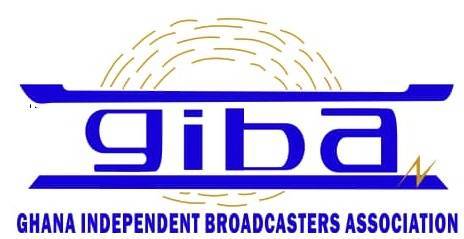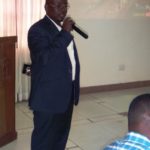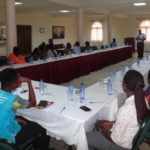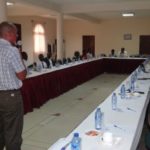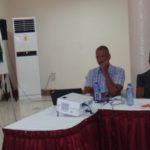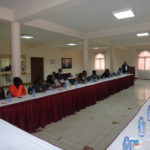GIBA - GeoPoll Media Ratio and Research Workshop in Takoradi
The Ghana Independent Broadcasters Association (GIBA) and Kantar GeoPoll Media Measurement (GeoPoll) organized a media ratio and research workshop on 10th May 2016, in Takoradi for GIBA Members. The objective of the workshop was to share the GeoPoll methodology and GeoPoll results to the GIBA members in the Central and Western regions. The meeting was arranged by the Executive Council and the National Secretariat. John Muthee from GeoPoll led the discussions at the workshop.
- Workshop participants were informed that respondents who participate in the research, are given a choice of stations in an SMS to select from. In the situation where the station is not listed, the respondent has the ability to indicate the station they listen to. The research does not probe the respondent on the platform/what medium was used in the listening/consumption process.
- Participants suggested that GeoPoll should probe for content and consider the target audience for a station in their research. Gaining knowledge on the characteristics of the audience could assist in targeting an audience for research.
- The drawbacks identified were centred/identified as mobile network coverage, possession of a cell phone since that is the means of gathering the data, and literacy levels.
- The moderator indicated that an identified challenge to the research is in getting the elderly population to take part in the research as it usually takes a lot more time to obtain feedback.
- In conducting the research, content and target market are not considered. These conclusions are usually inferred from the results of the research.
- Participants therefore wanted to know whether in not considering the target market, the research would not result in a misrepresentation of the research.
- Participants were informed that as much as possible, all stations are included in the survey, and the possibility for a new station to be indicated in the survey is determined by the market i.e., the popularity or not of any station.
- John Muthee further informed participants that during the research, the feedback determines the stations that are performing above others. Weighting for the research considers demographics such as gender and age.
- Participants were also informed that the research is carried out on a regional basis for radio and national basis for television.
- Participants wanted to know how the right respondents are obtained.
- Location issues where stations from all over the region and not centered in the capital arose. Participants suggested that zones are created within each region to allow for a better representation, i.e., localization/stratification of the research.
- In effect a form of media topography could be created to carry out the research.
- The Moderator indicated that in employing stratification, the sample size may have to be increased to allow for a better representation.
- To qualify to be a respondent does not require any stringent rules. This is a voluntary exercise. Volunteers for the research are then screened based on factors such as age, literacy levels, and whether they possess cell phones.
- Respondents are grouped into time blocks on a rotational basis. This enables the researcher determine their daily consumption pattern (style). It has been realized that using a set of respondents the whole day tends to have its drawbacks.
- The client usually determines the duration of keeping respondents but at the moment, sample rotation is conducted on a quarterly basis.
- Methodology of the research:
- Participants wanted to find out how the researcher was going to tackle the weaknesses of the methodology and determine the best way to tackle these weaknesses.
- The Moderator indicated that so long as radio stations are members of GIBA and agree to get on board, they would have more say in the research.
- Issues of radius of coverage for radio stations were also discussed where it came to light that there exists limitations to the reach of radio signals.
- Participants suggested that market segmentation is considered when conducting the research.
- It was advised that considering the identified limitations of cell phones, other means of collecting data be considered.
At the end of the workshop, participants were informed that using the GIBA National Secretariat as the focal point, data could be obtained at no cost for any individual station. However to obtain data in relation to other stations attracts a negotiable fee.
